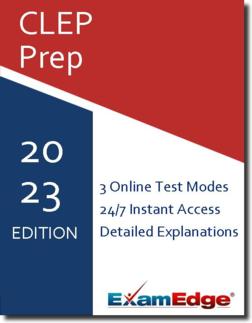CLEP Exam & CLEP Certification Info
The CLEP, or College-Level Examination Program, is a group of standardized tests created and administered by the College Board. These tests assess college-level knowledge in several subject areas and provide a mechanism for earning college credits without taking college courses. They are taken by adults returning to school, high school students, and those who have learned through independent study, on-the-job training, or cultural pursuits.
Step 1: Eligibility and Application
Anyone can take a CLEP exam. There are no prerequisites or age limits; however, you should check with your particular institution to make sure they accept CLEP credits. To register for a CLEP exam, you have to purchase an exam ticket from the CLEP website. The ticket is valid for six months.
Step 2: Scheduling the Exam
To schedule your exam, you need to contact a CLEP test center directly. The College Board has a test center locator on their website where you can find the closest location to you. You should contact the test center directly to find out their scheduling procedures. Some test centers allow walk-ins, while others require you to schedule your exam in advance.
Step 3: Taking the Exam
On the day of the exam, you need to bring your Registration Ticket and acceptable identification to the test center. The format of the exam differs depending on the subject, but most exams are primarily multiple-choice and are administered on a computer. The time limit for each exam is 90 minutes.
Location Information: CLEP exams are administered throughout the year at over 1,800 colleges and universities in the United States and abroad. You can find the test center closest to you by using the test center search tool on the CLEP website.
Website: The official CLEP website is https://clep.collegeboard.org/. Here, you can find all the information you need about the exams, including study resources, test center locations, and registration procedures.
CLEP Exams
The CLEP Biology certification test is a comprehensive assessment designed to evaluate one's knowledge of biological concepts typically taught in a two-semester undergraduate course. The test covers three major areas: molecular and cellular biology, organismal biology, and ecology and evolution. It is intended for students seeking college credit without enrolling in the actual course, accelerating their degree completion. The exam consists of approximately 115 multiple-choice questions, and a score of 50 or above is generally accepted for college credit by many institutions. CLEP Biology is a recognized standard of proficiency in the subject.
The CLEP Chemistry certification test is a rigorous examination designed to assess an individual's understanding of general chemistry concepts. Offered by the College Board, it covers topics such as atomic theory, chemical reactions, stoichiometry, thermodynamics, and molecular structures. The test is primarily used to obtain college credit for chemistry, bypassing introductory courses. It consists of 75 multiple-choice questions to be completed in 90 minutes. A strong foundation in high school chemistry and algebra is recommended for success. This certification offers a time-efficient and cost-effective pathway to accelerate academic progress.
The CLEP Mathematics certification test is a standardized examination that measures a student's proficiency and understanding of college-level mathematics. Topics covered range from algebra and functions to statistics and probability. The test is designed for students who have acquired knowledge through independent study, non-credit coursework, or work experience. Passing the CLEP Mathematics exam can earn students up to 6 college credits, accelerating their academic progress. It is a 90-minute, multiple-choice test, administered by the College Board, widely accepted by colleges and universities across the United States.
The CLEP Natural Science certification test is a comprehensive examination that evaluates individuals' knowledge in areas such as biology, earth science, chemistry, and physics. It caters to students who wish to gain college credits without attending traditional classes. The test consists of approximately 120 multiple-choice questions, covering topics such as scientific processes, physical sciences, and biological sciences. A strong understanding of scientific terminology and concepts is required. Passing the CLEP Natural Science test can provide a substantial acceleration in a student's academic path.
The CLEP Spanish certification test is a standardized examination for non-native Spanish speakers. It assesses the ability to understand, speak, and write Spanish at a college level. The test covers listening comprehension, reading comprehension, grammar, vocabulary, and structure. The score can be translated into college credit, enabling students to bypass introductory Spanish courses. This test is beneficial for those who want to save time and money in their higher education journey. The CLEP Spanish certification test is recognized by thousands of colleges and universities across the United States.

